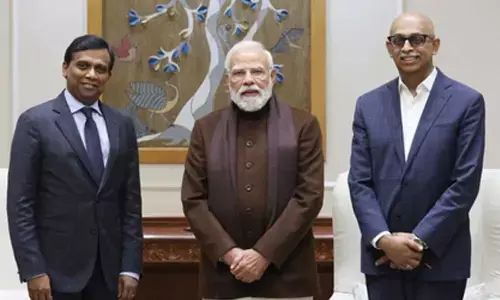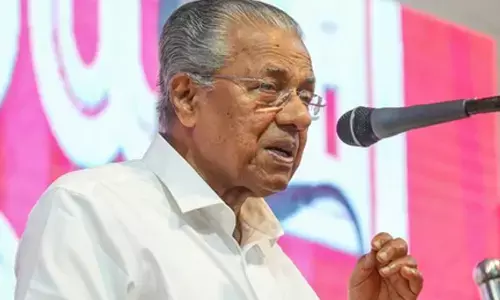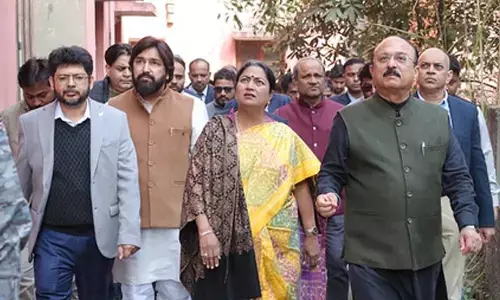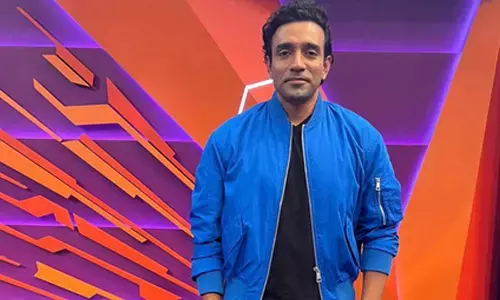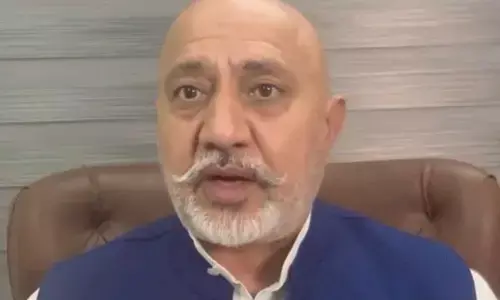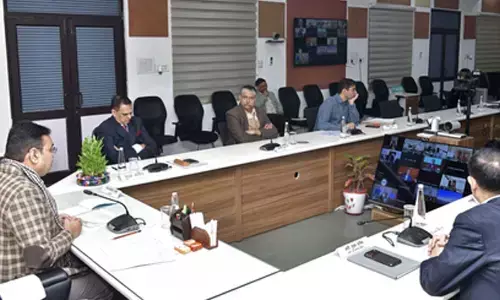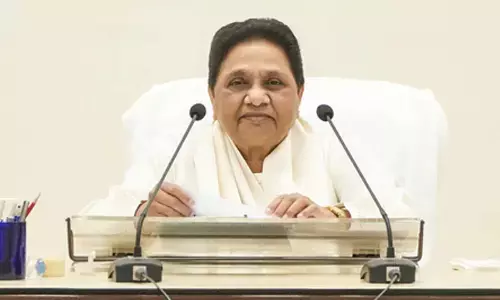Rahul Gandhi at his best as Leader of Opposition
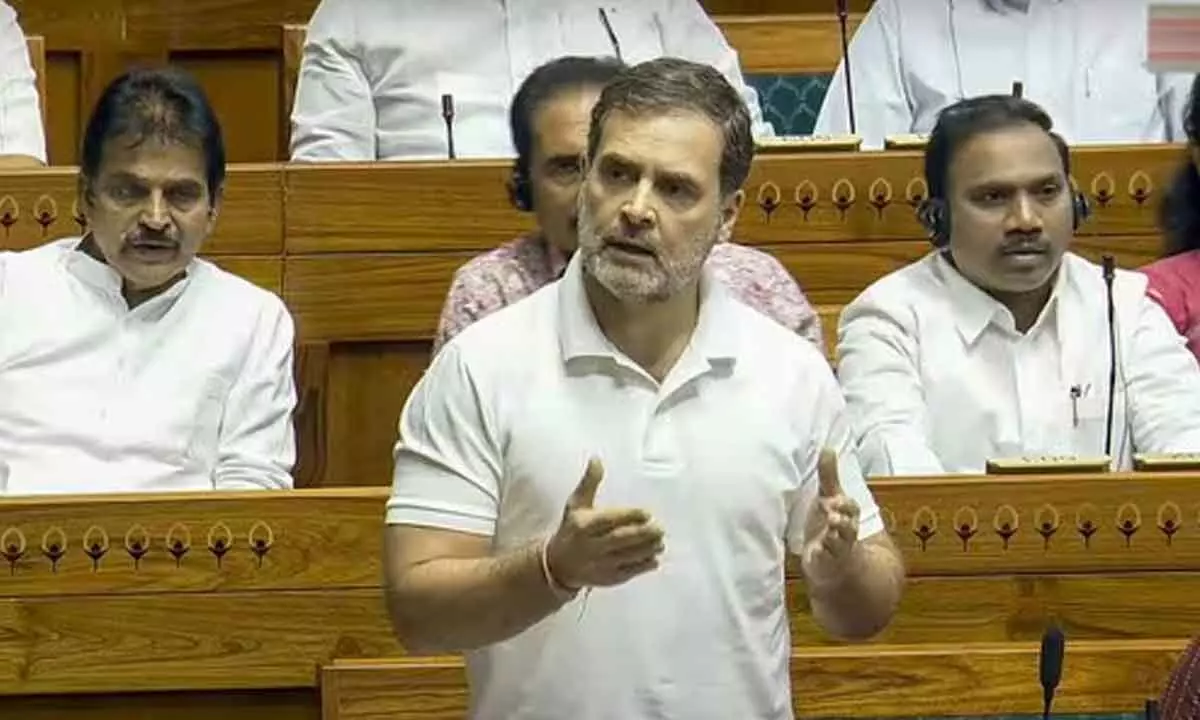
Notwithstanding his unpalatable remarks, Leader of Opposition Rahul Gandhi astonished everyone with his maiden speech on July 1 in Lok Sabha during the debate on the ‘Motion of Thanks to the President's Address.’
Notwithstanding his unpalatable remarks, Leader of Opposition Rahul Gandhi astonished everyone with his maiden speech on July 1 in Lok Sabha during the debate on the ‘Motion of Thanks to the President's Address.’
The way Rahul articulated and apportioned a few subjects ‘incredibly and exceptionally’ not only wiped out the ‘Ten Year Vacuum’ without a Leader of Opposition, but also reminded the speeches of his eminent predecessors. His serious allegations against Modi and his government, being harsh at times, were received by people with a mixed judgement – supporting or opposing him. Is Rahul stepping forward confidently towards a ‘Much Bigger Role’ in the service of country, in the footsteps of his illustrious father, grandmother, great grandfather, and great-great grandfather, not to speak of his mother known for her sacrifice? Or will he fail badly?
Rahul Gandhi's rhetoric and emotional appeal may be compared to speeches by yesteryears’ political leaders in general, and specially, with the echo, intensity, and critical tone demonstrated by Krishna Menon and Rajiv Gandhi. For instance, Rahul speech resembled V K Krishna Menon’s celebrated speech at the United Nations in 1957 in terms of length and intensity, and his father Rajiv Gandhi’s speech at the Washington Press Club in 1985, in terms of focusing visionary approach. Carefully worded Rahul’s speech was impassioned, detailed, and delivered, touching aspects of economic inclusivity and social justice.
Rahul Gandhi precisely highlighted Narendra Modi-led NDA government's failure to improve minimum support prices (MSP) and agricultural credit, reminding significant growth of these benefiting millions of farmers during the UPA government. He highlighted the plight of farmers, criticising the government's irresponsible approach to agricultural distress caused by adverse weather and accusing it of prioritising corporate interests over those of the common people requirements. He also attacked the government, accusing it of communal divisions, and alleging Agniveer Scheme as not of the Indian Army, but of the PMO.
Rahul Gandhi’s holding up pictures of Lord Shiva citing his attributes, referring to Hinduism, Islam, Sikhism, Christianity, Buddhism, Jainism, and teachings of Guru Nanak, Jesus Christ, Buddha, and Mahavir underlined the importance of fearlessness. Rahul also quoted Prophet Muhammad to highlight that the Quran, too, talks about fearlessness. His repeated reference to Hindus, and communal divisiveness drew huge protests from the treasury benches, with Prime Minister Modi himself slamming him for allegedly calling the entire Hindu community violent.
Against this backdrop, it may be apt to comprehend that no individual or organisation owns Hinduism, which is a complex, diverse, and universally acclaimed religion, with no single founder, no central authority, or no universally recognised single governing body. It is purely a way of life, developed over thousands of years through an array of philosophical, cultural, and religious practices. Finding fault with Rahul, who, perhaps, meant that Hinduism is precisely seen as a cultural, traditional, and religious heritage shared by millions of adherents rather than ‘One Single Entity’ is incorrect.
One may agree or disagree with Rahul, but he accused BJP of launching ‘Systematic Attacks’ on the Constitution and the fundamental concepts of India. He appealed to the ruling party not to spread fear or hatred. Portions of his speech, including his attacks and remarks on the BJP over the NEET row, Agnipath scheme, on industrialists, on minorities, on Hinduism and PM Narendra Modi-BJP-RSS, which prompted PM Modi's rare intervention, were expunged from the records. Reacting to this ‘expunge decision,’ Rahul said, “In Modi ji's world, truth can be expunged. But in reality, the truth cannot be expunged. I said what I had to say, that is the truth. They can expunge as much as they want. Truth is Truth.’
In India’s Lok Sabha, Leader of Opposition (LOP), entitled for such appointment, if his or her party gets 10% of total number of seats, holds Constitutionally recognized and ‘Conventionally Honored’ Position, akin to British Parliament. LOP is empowered with providing constructive criticism to the government, and to be ‘ever ready’ to lead the government when need arises. Key responsibilities include scrutinising and challenging government policies and decisions, offering alternative policies, and ensuring that voices and concerns of the opposition are heard. LoP plays a crucial role in maintaining the balance of power by leading debates and questioning the government. Though Constitutionally not mandated, conventionally, according to Westminster system, LOP is ‘Shadow Prime Minister.’
Post-Independence, the Leader of the Opposition did play a vital role. Until 1969, there was none as such in this role. When Indira Gandhi was PM, Dr Ram Subhag Singh of Congress Party (O) was recognised as ‘First Leader of the Opposition’ in the Lok Sabha from 1969 to 1971. Later, it was vacant between 1971 and 1977, 1980 and 1989, and between 2014 and 2024. In the chronological order, other Leaders of Opposition were: YB Chavan of INC (1977-78 & 1979 for a few days); C M Stephen of INC (1978-79); Jagjivan Ram of Congress-J (less than month); P V Narasimha Rao of INC (1984 -16 days); Rajiv Gandhi of INC (1989-90); L K Advani of BJP (1990-1993 and 2004-2009), Atal Bihari Vajpayee of BJP (1993-1997), Sharad Pawar of NCP (1998-2000), Sonia Gandhi of INC (2000-2004), L K Advani of BJP (2004-2009), and Sushma Swaraj of BJP (2009-2014). Now, Rahul Gandhi of INC is LOP. Lal Krishna Advani held the longest period for 8 years, 174 days and P V Narasimha Rao the shortest for 16 days.
Before Rahul Gandhi, recognised or unrecognised, Opposition leaders’ speeches were noteworthy. P Sundarayya (1952), Opposition Leader in the Parliament, highlighted the plight of the agrarian community, need for land reforms, and importance of addressing socio-economic inequalities. A K Gopalan (1957) focused on issues faced by workers and peasants, critiqued government's policies on industrialisation and land distribution, and called for greater emphasis on social justice. N G Ranga (1962) stressed the importance of cooperative movements, rural development, and the need for policies that support farmers and agricultural workers. S A Dange (1967) criticised government's handling of economic policies, called for better labor rights, and emphasized the need for more equitable distribution of resources.
Dr Ram Subhag Singh (1969), the first designated LOP, emphasized the need for a strong opposition to ensure government accountability and advocated for economic policies that benefit poor. Y B Chavan (1977) criticized the Emergency period, highlighted importance of democratic values and civil liberties. Atal Bihari Vajpayee (1980) stressed the importance of national unity and integrity, and the need for balanced approach to economic and foreign policies. P V Narasimha Rao (1984) focused on social justice, economic reforms, and maintaining non-aligned foreign policy stance. L K Advani (1991) highlighted national security, corruption, and the need for economic liberalization. Sonia Gandhi (1999) called for inclusive development, protection of democratic institutions, and transparency in governance. Sushma Swaraj (2009) emphasised women's empowerment, education, and accountability in governance.
These speeches were well received by the then Prime Ministers, and reflected evolving political priorities and challenges of each era, providing a backdrop to Rahul Gandhi's speech as LOP. This absolutely fits within a long tradition of opposition leaders advocating social justice, economic reforms, and protection of democratic institutions. Prime Minister Narendra Modi, too, in his reply, partly acknowledged Rahul Gandhi's ‘Constructive Criticism’ part, as he felt, which he said is required in democracy, appreciating opposition's role in holding government accountable. Nevertheless, launching a scathing attack, Modi sharply and pointedly criticised Rahul Gandhi on his many other remarks, accusing him being baseless and misleading. Modi even described Rahul as ‘Balak Buddhi’ (Childish Mind). He reiterated his commitment to work for a better future for all Indians, emphasising unity and collective effort in achieving national goals. Notwithstanding the ideological, political, conceptual, or even ‘Childish’ difference of opinion expressed by the Opposition and the Treasury Benches, the ‘Leader of the Opposition’ Rahul Gandhi was ‘at his best’ exhibiting all the qualities of a ‘Shadow Prime Minister’ and a ‘Future Prime Minister.’








